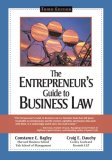Contrary to instinct, your marketing effort is really the first part of building your project. Before you begin investing too much time and energy into your site you need to do some market research. Are people interested in what you’re offering? Is that interest rising or diminishing? Is their interest already being adequately met?
In many ways we did not adequately do this for Walt Disney World For Grownups. Or maybe more appropriately we disregarded what we knew. We were well aware that the space was rife with “competitors,” but we decided to enter the ring anyway. Mainly because we hoped that our niche was not filled, because we had good subject matter expertise, and because there are fringe benefits to working in an area with which we were already familiar.
Despite this, if we had engaged in more “market research,” such as key word analysis and search engine optimization, before we entered the space, we could have probably put ourselves in a better position to succeed. Of course making these kinds of mistakes is part of the “Protoscopic Experiment,” and we’re glad to learn from them.
Our advice now–which we will follow with subsequent sites–is to optimize your marketing effort before you start any kind of development. What key words will increase your search traffic? What are good ways to increase your pagerank? Make sure the demand is where you think it is, and that you’re putting yourself in the best position to capture it.
Categories: Main blog narrative

Old-fashion values never stopped working
Two contradictory truths I’ve learned so far: 1. The way to succeed in an internet business evolves every day; as soon as you identify something that works, the rules all change, and 2. The way to succeed in internet business is the same way people have been succeeding in business for decades: cultivate the ability to anticipate, build, and maintain positive and synergistic relationships.
It’s the second that’s been catching my attention recently. We can always read up on the latest trends, take the best motivational speaker’s advice, and build the most logical and conservative business plan. But the real nitty-gritty of entrepreneurship is based on meeting the right people at the right time, setting oneself up for the useful introduction, and maintaining close and creative symbiotic associations. The art of gauging judgment calls in relationship-building is the practical foundation of buzz words like “networking” and “link-building.” For all you introverts out there, it’s time to break out of your shells!
If it ain’t broke, don’t fix it. Focus on relationship management in PR, link-building, marketing, and advertising and you’ll see positive change in your business. It will always work because there are too many people out there either not reaching out at all, or dropping the “polite, helpful, and useful ball;” your extra effort will be well recognized. Here are some very simple, 15-minute suggestions to try this week:
- Send positive comments to 3 of your competitors. This way they’ll know you exist, that you appreciate their work, and that you’re willing to play the game above board. Great collaborations can come out of this.
- Send thank you emails to 4 of your friends or family members who have been particularly helpful in launching or supporting your business/website; tell them how far their support has already taken you and let them know that you’d like to return the favor with any exciting projects they’re working on as well. People like to pass on compliments when they feel invested in something—this might spur them to some word of mouth advertising for you.
- Help out a site or business that’s not in your main market space, but with which you can see a creative connection. Send a supportive email, post in some flailing forums, or submit an article. This will introduce your site to an entirely new audience and create a positive new relationship that may just develop into a new collaborative venture.
Categories: Main blog narrative · Theory
August 16th, 2008 · 1 Comment

The Entrepreneur\'s Guide to Business Law
Rarely can I give an unabashedly positive review of a book. In this case I can unequivocally say that I recommend The Entrepreneur’s Guide to Business Law to anyone who wants to be an Entrepreneur.
to anyone who wants to be an Entrepreneur.
What It Isn’t
Lest I too badly disturb anyone used to my usual cynicism, let me first warn potential buyers what this book is not. This book is not a guide to trying to conduct certain legal matters without a lawyer. There are tons of books out there on “Incorporating Your Own Business,” and this is not one of them. The value of this book is in limiting how much time and money you spend with your lawyer and having an understanding of your options and what your lawyer is advocating.
What It Is
Ultimately The Entrepreneur’s Guide to Business Law is simply a high-level guide to the subset of the law that most affects entrepreneurs. The language is very easy to follow and concepts are presented in a logical order. In an excellent choice, the subject matter is presented in the order that it will usually be relevant to people. So for example, it first focuses on “quitting your day job” with rights to all of your work and proceeds all the way to IPO law.
is simply a high-level guide to the subset of the law that most affects entrepreneurs. The language is very easy to follow and concepts are presented in a logical order. In an excellent choice, the subject matter is presented in the order that it will usually be relevant to people. So for example, it first focuses on “quitting your day job” with rights to all of your work and proceeds all the way to IPO law.
One complaint that many may lodge is that so much is covered that none of it will apply to everyone. I think this is an illogical complaint for several reasons. First, the book is quite long, so even if you don’t use all of the information you still probably got plenty of value out of the book. Second, and more importantly, is that you can’t really know which of these sections does or does not apply to you without reading them. Information, even if not applicable now, may indeed be as your business progresses.
While you may never have an IPO, after reading about what it entails you might have a better idea of when it might be feasible. Even if it wasn’t your intent, you may find out that it’s more realistic than you thought. Or the book may recommend small changes you can make to make an IPO more feasible even if it’s not really in your plans. Even if you think that pollution may never be a concern for your business, the book makes some valid points about why you should be concerned about it, even if you aren’t in manufacturing.
Strong Points
The strongest points of the book are:
- Easy to understand language.
- A ‘case study’ at the end of each chapter that follows the progress of a fictitious startup to illustrate certain points.
- An appropriate amount of detail on most subjects. Enough to be useful, but not too much to make it not worth reading.
In summary I would recommend this book to anyone who plans on starting any kind of entrepreneurial venture. A few dollars spent on it could save you thousands in legal fees. Even if you never hire a lawyer, your improved knowledge of the law can make you more astute and informed when dealing with other parties.
Categories: Books · Reviews



